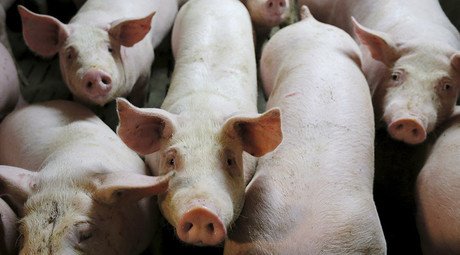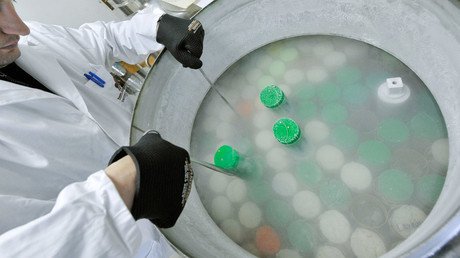‘Genetic discrimination': School ousted child based on DNA, lawsuit states

A school that has been accused of discriminating against a child for having genetic markers related to cystic fibrosis may foreshadow more frequent cases of alleged genetic bias in the future, as new tests can reveal yet unknown diseases in one's DNA.
In September 2012, upon registering for middle school in Palo Alto, California, the parents of Colman Chadam disclosed medical records for their son. Due to a congenital heart condition at the time of his birth, additional tests were conducted, resulting in the discovery that Colman carried genetic markers associated with cystic fibrosis, a disease that leads to lung infections, among other issues. Word of Colman's condition got to teachers at the school, who in turn told the parents of two siblings with cystic fibrosis who already attended the school.
Given that those with cystic fibrosis should not have contact with others with the disease because such association can lead to infection, the parents of the siblings requested Colman be moved from the school, according to the lawsuit. Colman's markers did not mean he had the disease, and doctors stressed that he showed no signs of the ailment.
Nevertheless, Colman's parents were told by school officials that they wanted to transfer the boy to a nearby school. Colman was ordered out of school for a couple weeks, triggering a lawsuit in state court, which was filed against the school district by his parents in October 2012. Once the parties settled the case, Colman was allowed back, the family has said in court filings.
“@HuffingtonPost: Big win for boy kicked out of school for his genes http://t.co/f56BexkV”
— #FueElEstado (@sandyluzleon) November 9, 2012In September 2013, the Chadams filed suit seeking damages, alleging the Palo Alto School District violated the Americans with Disabilities Act (ADA) because it "perceived Colman Chadam as a disabled person" and attempted to deprive him of the "right to attend the public school … closest to his home." The lawsuit also alleged that the situation caused physical and emotional distress for Colman, as well as a downturn in his school performance.
No 'designer babies': Groups warn of potential dangers in human embryo modification https://t.co/DtcO5e29z5pic.twitter.com/M0dfZnvgqV
— RT America (@RT_America) December 1, 2015A district court dismissed the lawsuit, ruling that while the Chadams had sufficiently proved their son was "regarded" as an "individual with a disability," the school district was acting with reason to believe that Colman posed a health risk to the two siblings with cystic fibrosis. Therefore, the claims of a violation of the ADA were refused.
This led to an appeal, filed in January 2016, by the Chadams with the federal Ninth Circuit appeals court. The suit alleged a violation of the ADA and the boy's right to privacy provided by the First Amendment. The appeal has been supported by the US Departments of Justice and Education.
Scientists apply for license to modify human embryos http://t.co/02nTPOdt0Apic.twitter.com/MfWfLAwH0J
— RT America (@RT_America) September 19, 2015In 2008, a federal law called the Genetic Information Nondiscrimination Act (GINA) was passed, outlawing genetic discrimination related to employment or health insurance. Experts point out that the law does not cover other areas where discrimination commonly occurs, including education. And as technological advances make genetic testing cheaper, easier, and more common, expect more cases like Colman's to arise.
“As we do more screening earlier and earlier in life, there’s potential for misuse of information in ways that are harmful, that could potentially discourage parents from seeking genetic testing even if it’s medically indicated,” Michelle Lewis, a pediatrician, attorney, and research scholar at the Johns Hopkins Berman Institute of Bioethics, told Wired.














